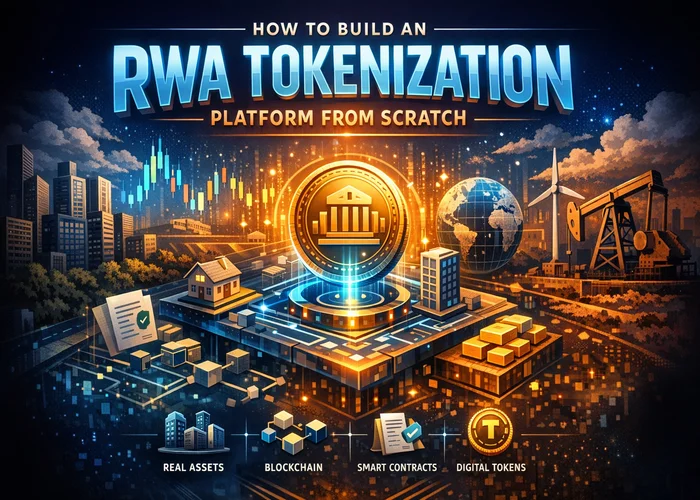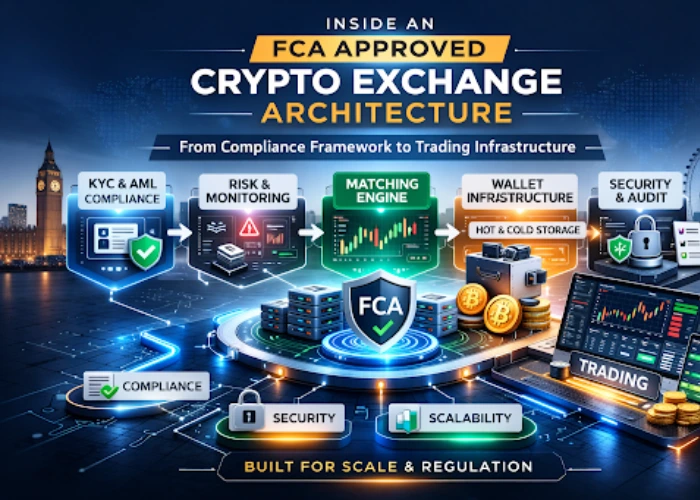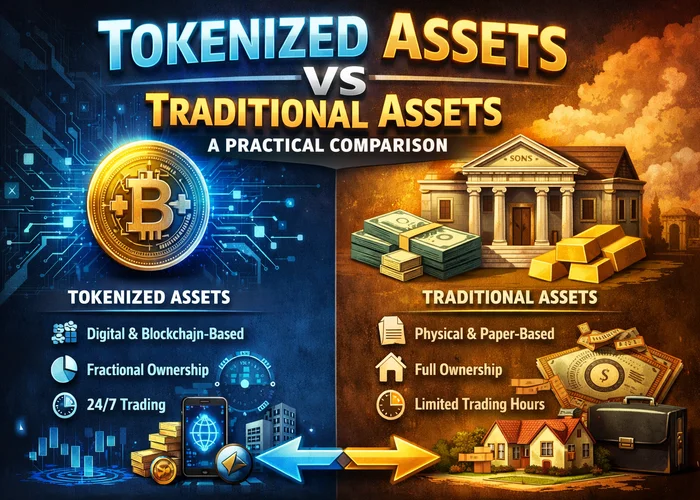The cryptocurrency landscape has evolved dramatically over the past decade, transforming from a niche technological experiment into a global financial ecosystem worth trillions of dollars. However, despite this remarkable growth, users continue to face significant challenges when navigating crypto exchanges. Understanding these 7 pain points to overcome on crypto exchanges is crucial for both traders and businesses looking to create a cryptocurrency exchange or improve existing platforms.
As the crypto market matures, addressing these fundamental issues becomes increasingly important for sustainable growth and mainstream adoption. Whether you’re a seasoned trader, a newcomer to the crypto space, or a cryptocurrency exchange development company, recognizing and solving these challenges is essential for success in the digital asset ecosystem.
Pain Point 1: Security Vulnerabilities and Hacking Risks
Security is the biggest of the 7 crypto exchange pain issues. High-profile cryptocurrency exchange development company hacks and security breaches have cost billions of dollars. This is one of the 7 Pain Points to Overcome on Crypto Exchanges.
Security Problem Size
Security vulnerabilities are complex issues that require more than technical solutions. Businesses creating cryptocurrency exchanges must employ strong security measures to guard against external and internal threats. Due to their decentralization, cryptocurrencies are difficult to recover, making prevention the sole option.
DDoS, social engineering, insider threats, and APTs threaten modern exchanges. Without the resources of established players, new platforms trying to create market confidence face significant security issues.
Pain Point 2: Regulatory Compliance and Legal Uncertainty
The second critical issue among the 7 pain points to overcome on crypto exchanges involves navigating the complex and ever-changing regulatory landscape. Regulatory uncertainty creates significant challenges for both exchange operators and users, as compliance requirements vary dramatically across jurisdictions and continue to evolve rapidly.
Building Regulatory-Compliant Platforms
7 Pain Points to Overcome on Crypto Exchanges is the successful compliance requires ongoing legal expertise and adaptive platform architecture. Exchanges must implement robust KYC and AML (Anti-Money Laundering) procedures, maintain detailed transaction records, and often obtain specific licenses in each jurisdiction where they operate.
Key compliance considerations include:
Implementation of comprehensive KYC/AML procedures
Regular compliance audits and reporting
Legal consultation for each target jurisdiction
Flexible platform architecture to accommodate regulatory changes
Staff training on compliance requirements
Establishment of clear terms of service and user agreements
The estimated cost for crypto exchange development increases substantially when regulatory compliance is properly factored in, but non-compliance can result in much higher costs through fines, legal issues, and operational shutdowns.
Pain Point 3: Liquidity and Market Depth Issues
Another of the 7 pain points to overcome on crypto exchanges. Insufficient liquidity causes significant bid-ask spreads, price slippage, and poor user experience, especially for big orders and less popular cryptocurrency pairs.
Strategies for Improving Liquidity
Successful exchanges employ various strategies to bootstrap and maintain liquidity. These approaches require careful planning and often significant initial investment, but they are essential for creating a viable trading environment.
Effective liquidity strategies include:
Partnerships with institutional market makers
Implementation of automated market making algorithms
Cross-exchange liquidity aggregation
Incentive programs for high-volume traders
Strategic listing of popular trading pairs
Integration with decentralized liquidity protocols
Multi-currency development services can help exchanges implement sophisticated liquidity management systems that aggregate liquidity from multiple sources and provide users with better pricing and execution.
Pain Point 4: User Experience and Interface Complexity
The fourth major challenge among the 7 pain points to overcome on crypto exchanges involves creating intuitive, user-friendly interfaces that cater to both beginners and experienced traders. Many exchanges suffer from overly complex interfaces that intimidate newcomers while simultaneously lacking the advanced features that professional traders require.
Best Practices for Exchange UI/UX Design
Successful exchanges invest heavily in user experience design and continuous improvement based on user feedback. This includes regular usability testing, A/B testing of interface changes, and ongoing optimization of user flows.
Key UX considerations include:
Intuitive navigation and information architecture
Responsive design for mobile and desktop platforms
Clear visual hierarchy and information presentation
Comprehensive help documentation and tutorials
Multilingual support for global users
Accessibility features for users with disabilities
When businesses create a cryptocurrency exchange and Types of Crypto Exchanges and Their Uses, they should prioritize user experience from the beginning rather than treating it as a secondary concern. Poor UX can drive users to competitors regardless of other platform advantages.
Pain Point 5: High Transaction Fees and Hidden Costs
Fee structures represent a significant pain point among the 7 pain points to overcome on crypto exchanges. Many users are frustrated by high trading fees, withdrawal charges, and hidden costs that can significantly impact trading profitability, particularly for smaller transactions or frequent traders.
Understanding Exchange Fee Structures
Exchange fees typically include trading fees (charged per transaction), withdrawal fees, deposit fees, and various other charges such as listing fees for new tokens or premium features. The complexity of fee structures often makes it difficult for users to understand the true cost of trading on a platform.
High fees are particularly problematic for retail traders and can create barriers to entry for newcomers to the cryptocurrency space. Additionally, unexpected or hidden fees can damage user trust and drive customers to competing platforms with more transparent pricing.
Developing Competitive and Transparent Fee Models
Successful exchanges balance the need for revenue generation with competitive pricing that attracts and retains users. This requires careful analysis of market conditions, competitor pricing, and user behavior patterns.
Effective fee strategies include:
Transparent, easy-to-understand fee schedules
Volume-based discounts for high-frequency traders
Competitive pricing relative to market standards
Clear communication of all charges before transaction execution
Flexible fee models that can adapt to market conditions
Integration of native tokens for fee discounts
A professional cryptocurrency exchange development company can help design fee structures that balance user satisfaction with business viability while ensuring compliance with regulatory requirements.
Pain Point 6: Limited Customer Support and Response Times
Customer support challenges constitute another critical issue among the 7 pain points to overcome on crypto exchanges. Many exchanges struggle to provide timely, effective customer support, leading to user frustration and potential loss of funds when issues arise.
Building Effective Support Systems
Successful exchanges invest in comprehensive support infrastructure that includes multiple communication channels, well-trained support staff, and efficient ticket management systems. This requires ongoing investment in personnel, training, and technology.
Key elements of effective customer support include:
Multiple communication channels (chat, email, phone, social media)
Comprehensive FAQ and knowledge base resources
Multilingual support capabilities
Escalation procedures for complex issues
Regular staff training on platform features and common issues
Integration with platform systems for quick issue resolution
When companies create a cryptocurrency exchange, they should budget appropriately for customer support infrastructure and recognize it as a critical competitive advantage rather than a necessary expense.
Pain Point 7: Technical Infrastructure and Scalability Challenges
The final major concern among the 7 pain points to overcome on crypto exchanges involves building and maintaining robust technical infrastructure that can handle high-volume trading while maintaining reliability and performance.
Understanding Infrastructure Requirements
Cryptocurrency exchanges face unique technical challenges that differ significantly from traditional web applications. They must handle high-frequency trading, real-time price feeds, complex order matching, and secure wallet operations while maintaining 99.9%+ uptime.
Scalability issues become particularly acute during periods of high market volatility when trading volumes can increase by orders of magnitude within hours. Infrastructure that performs adequately under normal conditions may fail catastrophically during peak demand periods, resulting in user frustration and potential financial losses.
Building Scalable Exchange Architecture
Modern exchange architecture requires careful planning and significant technical expertise. The estimated cost for crypto exchange development includes substantial investment in infrastructure, monitoring systems, and ongoing maintenance.
Critical infrastructure components include:
High-performance order matching engines
Redundant server infrastructure with failover capabilities
Real-time data processing and distribution systems
Secure wallet and key management systems
Comprehensive monitoring and alerting systems
Load balancing and auto-scaling capabilities
What Is Regenerative Finance (ReFi) and How Does It Work in Crypto? A spot trading crypto exchange development guide would emphasize the importance of building infrastructure that can handle both current needs and future growth projections.
The Role of Exchange Development Companies
Addressing the 7 pain points to overcome on crypto exchanges requires specialized expertise that many organizations lack internally. Professional cryptocurrency exchange development companies bring essential knowledge and experience to these challenges.
Selecting the Right Development Partner
When choosing where to start to build a Bitcoin exchange site, organizations should carefully evaluate potential development partners based on their track record, technical expertise, and understanding of regulatory requirements. The right partner can help navigate the complexities of exchange development while avoiding common pitfalls.
Key selection criteria include:
Proven experience in cryptocurrency exchange development
Understanding of regulatory requirements across multiple jurisdictions
Strong security expertise and track record
Ability to build scalable, high-performance systems
Ongoing support and maintenance capabilities
Transparent pricing and project timelines
ReFi vs DeFi: The Future of Sustainable Finance in Crypto. Addressing the 7 Pain Points to Overcome on Crypto Exchanges will make you understand this. You should also understand Multi-currency development services.
Emerging Solutions and Future Trends
Decentralized Finance (DeFi) Integration
The rise of DeFi protocols offers new opportunities to address liquidity and functionality challenges. Many exchanges are exploring integration with DeFi protocols to enhance their service offerings and provide users with access to additional financial products.
The concept of Regenerative Finance (ReFi) represents an evolution of DeFi focused on environmental and social sustainability. Understanding what is Regenerative Finance (ReFi) and how does it work in crypto can help exchanges position themselves for future market developments.
The comparison between ReFi vs DeFi: the future of sustainable finance in crypto highlights the importance of environmental considerations in exchange development and operation.
Advanced Technology Integration
Modern exchanges are leveraging advanced technologies to address traditional pain points:
Artificial intelligence for fraud detection and user experience optimization
Blockchain technology for increased transparency and security
Cloud-native architecture for improved scalability and reliability
Mobile-first design approaches for better accessibility
Regulatory Technology (RegTech) Solutions
7 pain points to overcome on crypto exchanges is specialized regulatory technology solutions are emerging to help exchanges manage compliance requirements more efficiently. These tools can automate many compliance processes while reducing costs and improving accuracy.
Building a Strong Crypto Community
Success in the cryptocurrency exchange space requires more than just technical excellence. Understanding how to build a strong crypto community is essential for long-term success and user retention. Which Platform or App is Safe for Trading in Cryptocurrency? Understanding this will make you understand the 7 pain points to overcome on crypto exchanges.
Community Building Strategies
Successful exchanges invest in community building through:
Educational content and resources
Active social media engagement
User feedback programs and feature requests
Loyalty programs and user incentives
Partnerships with other ecosystem participants
Transparency in operations and decision-making
Safety and Trust Considerations
When users ask “which platform or app is safe for trading in cryptocurrency,” they’re looking for exchanges that have successfully addressed the 7 pain points to overcome on crypto exchanges. Building trust requires consistent execution across all aspects of exchange operation. You can also read about What is the estimated cost for crypto exchange development?.
Implementation Strategies for New Exchanges
For organizations looking to create a cryptocurrency exchange, addressing these pain points requires a systematic approach and significant planning.
Planning and Development Phase
The initial planning phase should include:
Comprehensive market research and competitive analysis
Detailed regulatory analysis for target jurisdictions
Technical architecture planning and security assessment
Business model development and financial projections
Team building and expertise acquisition
Launch and Growth Strategies
Successful exchange launches require:
Beta testing with select user groups
Gradual rollout of features and trading pairs
Continuous monitoring and optimization
User feedback collection and implementation
Marketing and user acquisition strategies
For those interested in how to start a Bybit-like crypto exchange platform, the key is understanding how successful platforms have addressed these fundamental challenges while building sustainable competitive advantages.
Conclusion
The 7 pain points to overcome on crypto exchanges must be overcome for platform success. Security vulnerabilities, regulatory compliance, liquidity concerns, user experience issues, high fees, poor customer service, and technological infrastructure issues require careful attention and significant effort to fix.
7 pain points to overcome on crypto exchanges issues require experience, resources, and dedication. Companies considering creating a cryptocurrency exchange should assess their skills and engage with professional development firms who understand these complexities.
New technologies and methods solve classic bitcoin concerns as the business evolves rapidly. However, exchange operators must continue to address these 7 pain points to overcome on crypto exchanges.
Cryptocurrency exchange success demands more than technical skills. It requires knowledge of user needs, regulations, security best practices, and market dynamics. Addressing these pain points will help companies develop profitable, sustainable bitcoin exchanges that serve the increasing ecosystem.
How do I buy a crypto when it first comes out? The answer hinges on identifying exchanges that have overcome these fundamental challenges while delivering safe, dependable, and user-friendly cryptocurrency trading platforms.
If you are confused about Where do I start to build a Bitcoin exchange site?, how to build a Strong Crypto Community reach out to our Shamlatech Site.











